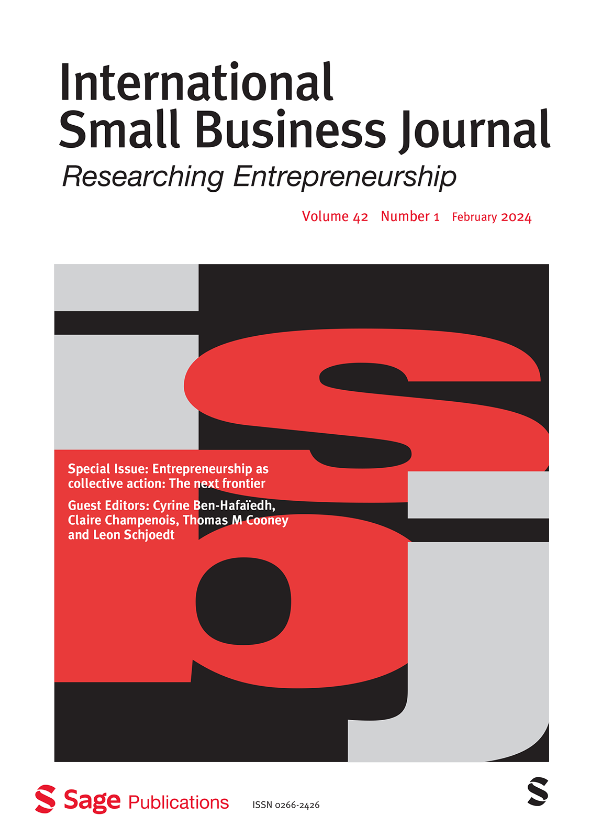Incumbents versus circular start-ups in the workwear industry: Organisational and individual drivers and barriers to a circular economy
IF 3.9
2区 管理学
Q1 Business, Management and Accounting
International Small Business Journal-Researching Entrepreneurship
Pub Date : 2024-06-24
DOI:10.1177/02662426231206818
引用次数: 0
Abstract
This article analyses the organisational and individual drivers and barriers to the implementation of circular business models (CBM) by incumbents and start-ups in the workwear industry. It is based on a qualitative study of 15 organisations in the Swedish workwear industry. Most incumbents are found to have either long-life models with hybrid elements, such as repair, or access models, while circular start-ups have a larger variety of CBMs, although the most common is gap exploiter. Internal organisational barriers mostly differ between the two groups; however, external organisational barriers are more significant and common, such as the low price of new workwear, a lack of demand and a lack of supporting policies, for example, public procurement. Several organisational drivers are identified, such as opportunities to deliver customer value, textile and digital innovations and environmental concerns. Drivers and barriers are influenced by both type of CBM and type of company. Individual drivers and barriers, which are often overlooked in literature, are found to be important to CBM implementation.工作服行业的现有企业与循环型初创企业:实现循环经济的组织和个人驱动力与障碍
本文分析了工作服行业的现有企业和新创企业实施循环商业模式(CBM)的组织和个人驱动因素及障碍。文章基于对瑞典工作服行业 15 家组织的定性研究。研究发现,大多数现有企业要么采用带有混合元素(如维修)的长寿命模式,要么采用准入模式,而新成立的循环型企业则采用更多种类的 CBM,但最常见的是间隙利用模式。两组企业的内部组织障碍大多不同,但外部组织障碍更为显著和常见,如新工作服价格低廉、需求不足和缺乏支持政策(如公共采购)。此外,还发现了一些组织驱动因素,如提供客户价值的机会、纺织品和数字创新以及环境问题。驱动因素和障碍受建立信任措施类型和公司类型的影响。文献中经常忽略的个人驱动因素和障碍,被认为对建立信任措施的实施非常重要。
本文章由计算机程序翻译,如有差异,请以英文原文为准。
求助全文
约1分钟内获得全文
求助全文
来源期刊
CiteScore
10.80
自引率
8.50%
发文量
49
期刊介绍:
The International Small Business Journal (ISBJ) is a leading peer-reviewed journal renowned for publishing high-quality original research papers on small business and entrepreneurship. It prioritizes research-based studies that contribute to theory development, critical understanding, and policy formulation related to small firms.
ISBJ papers encompass theoretical, methodological, and empirical studies from various disciplines and perspectives, aiming for research excellence in the field. The journal provides a critical forum for world-class contributions analyzing entrepreneurship and entrepreneurial behavior.
This refereed journal is valuable to academics, policymakers, analysts, government and business officials, small business representative bodies, and support agencies seeking to gain insights into the sector, trade, business institutions, and related matters.

 求助内容:
求助内容: 应助结果提醒方式:
应助结果提醒方式:


